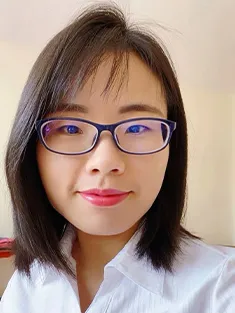Winner: 2021 Dalton Emerging Researcher Award
Dr Jiangnan Li
University of Manchester
For the development of stable porous materials for the capture and conversion of NOx and SOx.

The development of robust porous materials for nitrogen oxide (NOx) and sulfur oxide (SOx) capture and conversion provides sustainable techniques to the abatement of air pollution. This technique overcomes the disadvantages of traditional technologies and will inform future designs of improved materials to capture air pollutants.
Biography
Dr Jiangnan Li grew up in Xingtai, Hebei province in China. She obtained her BSc degree in Pharmacy from Shandong University in 2013. During her undergraduate study, Dr Li obtained multiple Excellent Student Scholarships and Metric Student awards from Shandong University. She then moved to the School of Pharmaceutical Science and Technology in Tianjin University to carry out her graduate study and gained her MSc degree in Medicinal Chemistry in 2016. She graduated with an Excellent Graduate honour from Tianjin University. In 2016, Dr Li moved to the University of Manchester to conduct her PhD study under the supervision of Dr Sihai Yang and Professor Martin Schröder. Her project focused on the capture and separation of toxic gases and light hydrocarbons using porous materials.
During her PhD study, she has attended multiple experiments at national facilities, including Diamond Light Source, ISIS Neutron Facility, European Synchrotron Radiation Facility, and Advance Light Source. Jiangnan received a scholarship from China Scholarship Council (2016–2020), a prize for her poster exhibition at the School of Chemistry Postgraduate Research Conference (2018), an Outstanding Achievement Award from the Department of Chemistry for the spring of 2020 and the 2020 IZA Metal-Organic Framework Commission Early Career Scientist Award.
Dr Li, as a postdoc in Schröder/Yang group, continues to develop the promising materials for the capture and conversion of NOx and SOx.
When people work together their energy boosts creativity, productivity and efficiency.
Dr Jiangnan Li
Q&A
How did you first become interested in chemistry?
It was a curiosity for why things are in the world.
Who or what has inspired you?
My chemistry teacher in high school.
What motivates you?
The emerging good feedback from chemistry courses and experience.
Why do you think teamwork is important in science?
Teamwork can make science work better. When people work together their energy boosts creativity, productivity and efficiency.